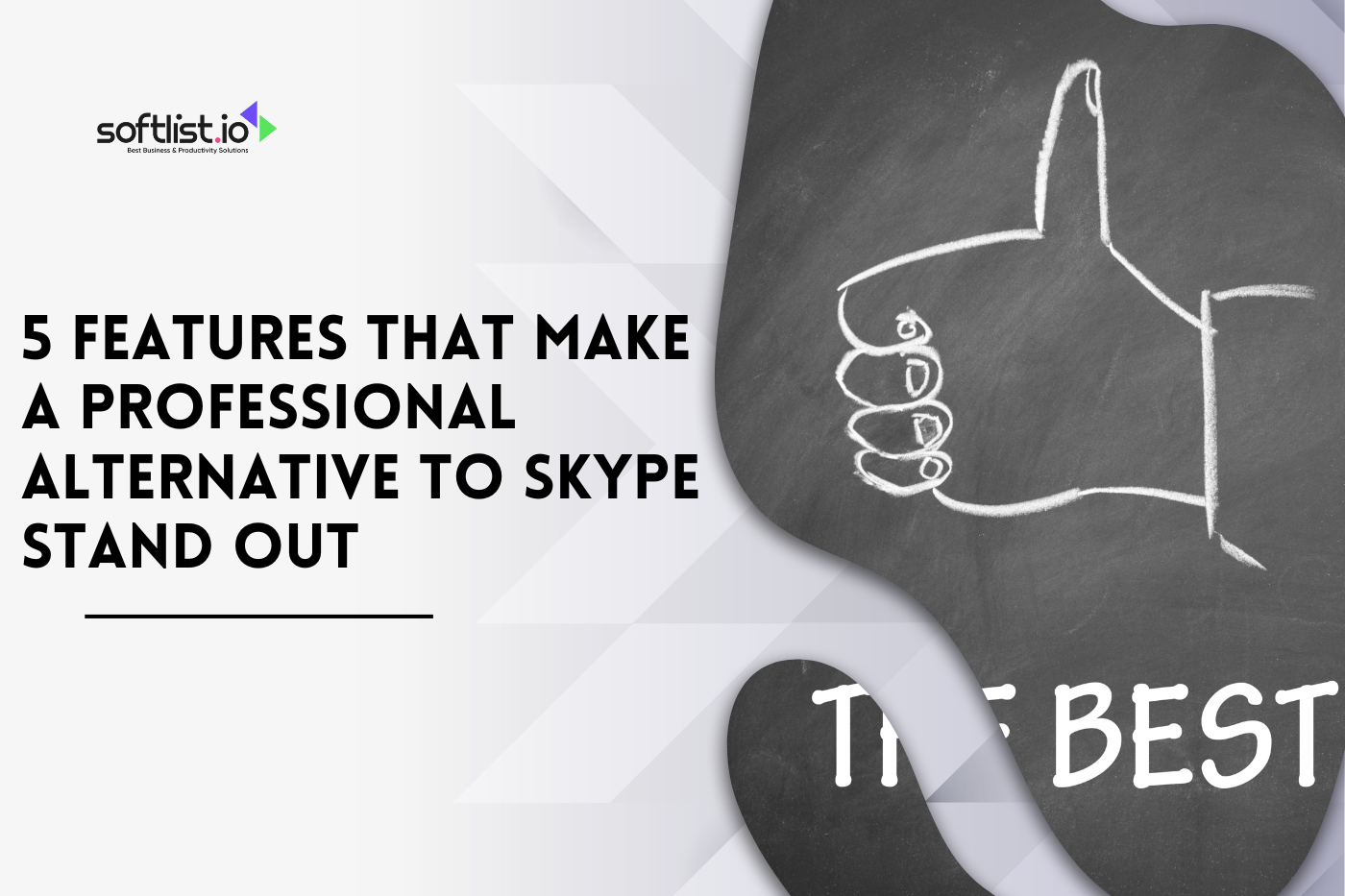In today’s digital age, remote work and virtual meetings have become the norm. As a result, video conferencing platform has become an essential tool for businesses. Individuals also benefit from this. With the ability to connect people across the globe, video conferencing software has made it easier to communicate.
In this blog, we will discuss the basics of video conferencing software. This will help you decide if want to give video conferencing tools a go.
What is Video Conferencing Software and Why is it Important?

Using video conferencing software, people or groups can talk to each other in real time using both audio and video, no matter where they are. Video conferencing software has become an important tool for people and businesses all over the world because of the rise of remote workers and remote collaboration.
With this software, individuals and groups can hold online conferences, webinars, presentations, and interviews as if they were all in the same room. The software is important for remote work and productivity because it lets users share screens, documents, and videos in real time.
The fact that video conferencing software can connect people and groups in different parts of the world and make communication and teamwork easier shows how valuable it is. In the past few years, the COVID-19 pandemic, which forced many companies to switch to remote work, has also made video conferencing software more important.
Factors to Consider When Choosing Video Conferencing Software
When it comes to choosing video conferencing equipment, there are a number of key factors that should be considered. Each of these factors can impact the overall quality and effectiveness of your video conferences, so it’s important to carefully evaluate each one.
Ease of use

The user interface of the video conferencing software should be easy to understand and use. It should also be easy to set up and install. It’s also important that the controls and navigation are easy to use so that users can easily manage and change their video conference settings.
Audio and video quality

For clear and smooth video conferences, it’s important to have a good video resolution and frame rate. It’s also important to have good audio with noise cancellation so that everyone can hear and understand each other.
Functions and features of video conferencing software

The video conferencing software should have a variety of features and functions, such as screen sharing and document collaboration, recording and playing back, virtual backgrounds and filters, polls and surveys, breakout rooms, and group collaboration. It’s important to pick a solution that has the features you need.
Compatibility and integration

The video conferencing software should work with different operating systems and devices. It should also work with other productivity and communication tools, like calendars and messaging apps.
Security and privacy

To make sure your video conferences are safe and private, you need end-to-end encryption and data protection. The software should also provide secure authentication and access control, and it should follow the rules and standards of the industry.
Scalability and flexibility

The software should be able to host large meetings and webinars and be flexible enough to change plans and features as needs change.
Customer service and support

The software for video conferencing should have quick answers to any technical questions or problems and reliable customer service and support.
Price and ability to pay

You should think about how much the software will cost and whether you can afford it. There are versions that are free and versions that cost money. There should be more options and features in the paid version.
Understanding the Technical Aspects of Video Conferencing Software
How video conferencing software works
Video conferencing software makes it possible for people or groups in different places to talk and interact with each other in real time. This is made possible by a mix of hardware and software parts that work together to send video and sound. When a user starts a video conference, the software takes audio and video data from the user’s device and sends it over the internet to the remote device. The data is then sent to the remote device, which plays back the video and sound in real time.
Different types of video conferencing software
There are two main types of software for video conferencing: software that works on its own and software that works with other programs. Standalone software is a dedicated tool for video conferencing that is made just for that purpose. On the other hand, integrated software is video conferencing that is built into other programs, like messaging or collaboration tools.
Common video conferencing protocols
Protocols for video conferencing are the rules and standards that govern how data for video conferencing is sent from one device to another. H.323, SIP, and WebRTC are all common protocols for video conferencing.
Understanding video codecs and compression
During a video conference, video codecs and compression are used to cut down on the amount of data that needs to be sent. Video codecs squeeze the video data, and compression algorithms reduce the amount of data that needs to be sent even more. This makes it easier for the video conference to work with less bandwidth.
Cloud-based vs on-premise video conferencing software
The software for cloud-based video conferencing is hosted by a third party and can be accessed over the internet. On-premise video conferencing software, on the other hand, runs on the servers inside an organization. On-premise video conferencing software gives you more control and security, but cloud-based video conferencing software is easier to use and can grow with your needs.
Advantages of Using Video Conferencing Software
Increased productivity and collaboration

Video conferencing software lets people and teams work together in real-time, no matter where they are. This can make teams more effective and productive because they can work together to solve problems and make decisions faster.
Cost savings and efficiency

Video conferencing software can help businesses save money on travel costs and cut down on the time and money needed for in-person meetings. This can make organizations more efficient and save them money.
Better work-life balance

Video conferencing software lets people work from home or other remote locations. This can help people get a better balance between their work and personal lives and reduce stress.
Reduced carbon footprint

Video conferencing software can help organizations reduce their carbon footprint. It also helps to contribute to a more sustainable future by cutting down on the need for travel because of video calls.
Increased accessibility and inclusivity

Video conferencing software can help organizations become more open to everyone. This is so by letting people with disabilities or other limitations join meetings and work together from far away. This can help make sure that everyone has a say and can contribute to the success of the organization.
Final Thoughts
In conclusion, video conferencing software has changed how we talk to each other and work together, both at home and at work. Because there are so many different features and options, it’s important to carefully think about your needs. Also, knowing the technical details of video conferencing software and the best ways to use it can help make sure that virtual meetings go well and get the job done. Find out more about the best video conferencing software here.
FAQs
Can video conferencing software be used for online education?
Yes, video conferencing software can be used for online education, allowing students and teachers to participate in virtual classes and discussions.
What kind of hardware and equipment do I need to use video conferencing solutions?
To use video conferencing software, you typically need a device with a camera and microphone, such as a laptop, desktop video conferencing, or smartphone. Additionally, a stable internet connection is important for smooth video conferencing work.
Can I use video conferencing technology to host large events or webinars?
Yes, many video conferencing software has the scalability and flexibility to host large events or webinars with multiple participants.
How can I ensure the security and privacy of my virtual meetings?
To ensure the security and privacy of your virtual meetings, choose a video conferencing solution with end-to-end encryption and data protection, and follow best practices such as using strong passwords, avoiding sharing meeting links publicly, and being cautious of suspicious participants.
Are there any alternatives to video conferencing systems for virtual meetings?
Yes, there are alternatives to video conferencing services such as audio conferencing and instant messaging platforms. However, video chat software offers the most comprehensive and immersive virtual meeting experience.






